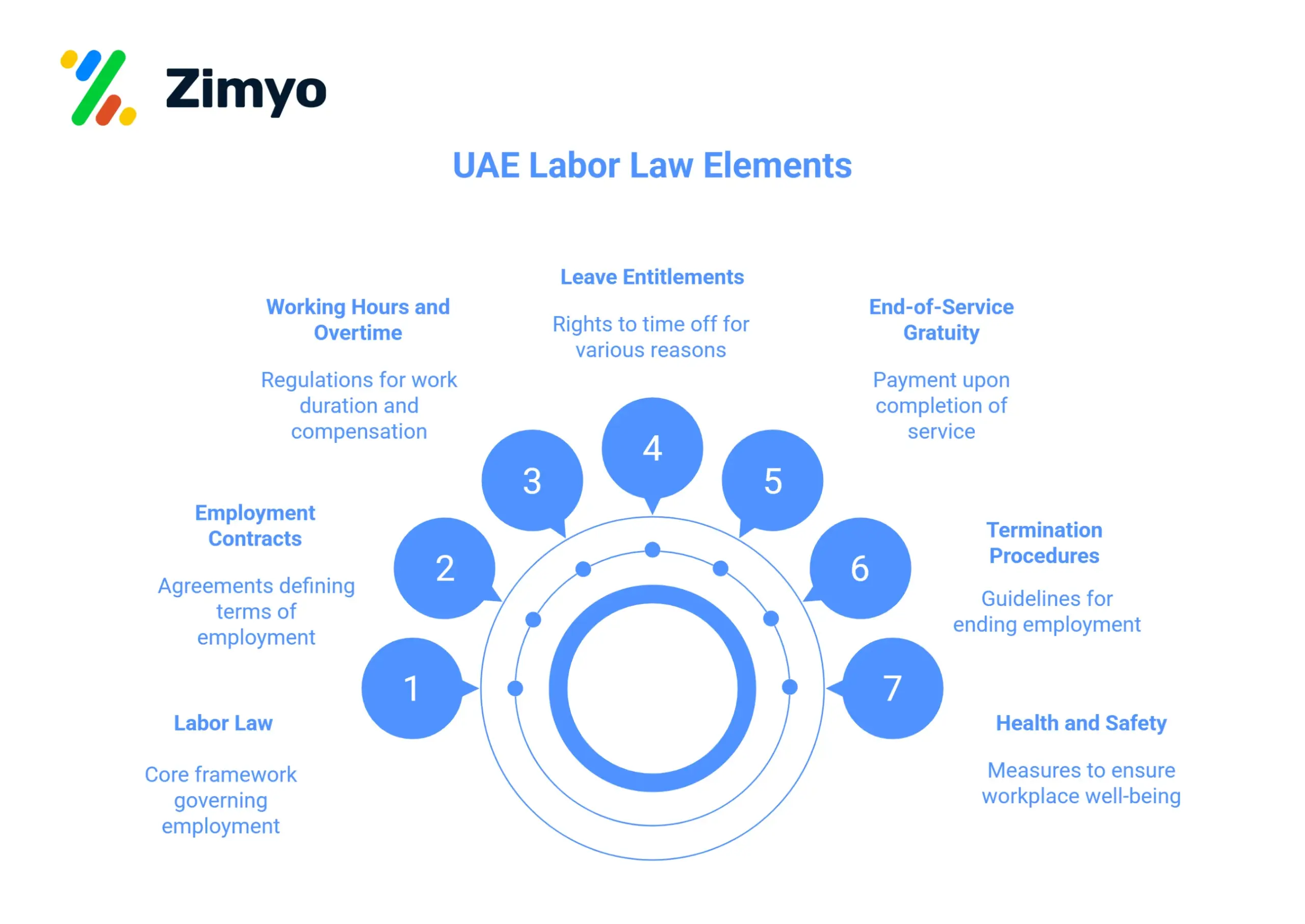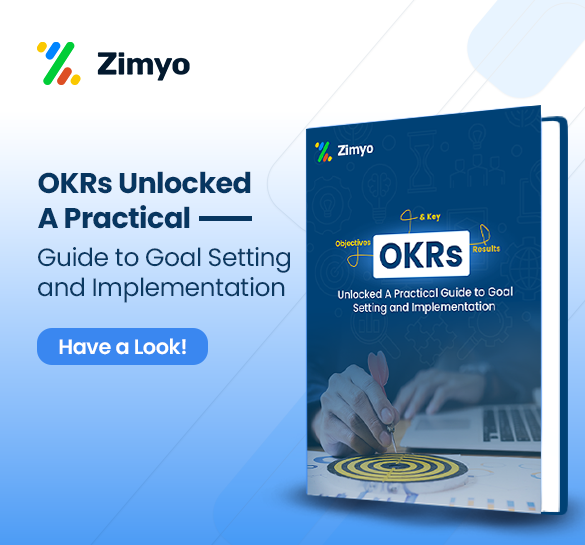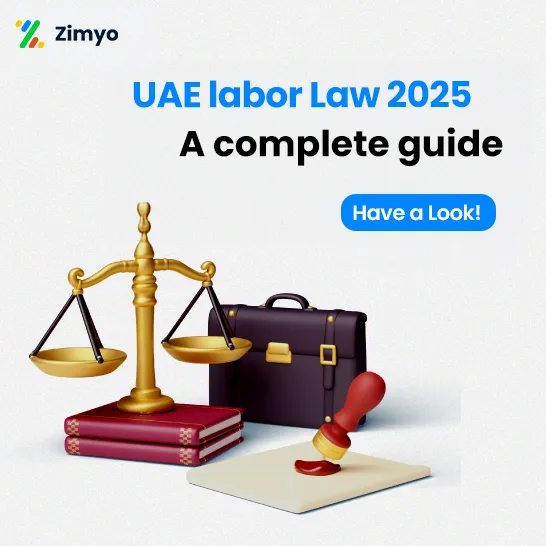If you’re running a business in the UAE, setting up the correct HR policies isn’t just about ticking off a compliance checklist—it’s around laying the basis for a well-functioning, future-ready workplace. The UAE’s mic workforce and evolving legal system make it basic for employers to remain educated and adapt their HR practices accordingly.
In this blog we’ll see step by step guide through the core human resource policies that every UAE employer needs. Fresh start or reviewing what you have, this guide is designed to ensure you do it correctly.
Why HR Policies in UAE Matter More Than Ever
First and foremost, HR policies are the playbook of Employee management. They lay down expectations, qualify entitlements, and bring about uniformity in the way workplace issues are dealt with. In a nation such as the UAE—where local labor legislation, cultural traditions, and international business practices meet—clear HR policies are not a nicety but a necessity.
Indeed, recent research shows that companies with strong HR components have greater belief in workers, lower turnover, and less legal conflicts. With the multicultural nature of the UAE workforce and the drive towards economic diversification, these arrangements are essential for long-term achievement.
The Legal Foundation: Understanding UAE Labor Law
The foundation of every successful HR policy in the UAE is Federal Decree-Law No. 33 of 2021 and its amendments, which dictate employer-employee relations human resource management policies and procedures.
Major Elements of UAE Labor Law Are:
Below given are the certain important elements of the UAE Labour Law under company human resources policy-
- Employment contracts (limited term)
- Working hours and overtime conditions
- Leave entitlements
- End-of-service gratuity
- Termination procedures
- Health and safety duties
A Step Towards Flexibility
Notably, Federal Decree-Law No. 49 of 2022 put in place provisions for flexible work models, such as part-time, temporary, and remote positions. For contemporary enterprises, this change is the key to tailored work arrangements while being fully compliant with the labor law under human resource policies.
Oversight and Enforcement
The Ministry of Human Resources and Emiratisation (MOHRE) has an important role in upholding and applying labor laws. MOHRE is additionally responsible for giving dispute resolution services and issuing periodic Ministerial Resolutions that act as useful rules for employers under HR policies.
Tip: Keep side by side with periodic updates issued by MOHRE to guarantee that your HR processes are updated and compliant.
Key HR Policies in UAE Employers Must Have
1. Recruitment and Onboarding
Recruiting the right individuals is half the story. Your hiring policy must detail:
- Equal opportunities hiring procedures
- Utilization of vetted recruitment agencies
- Pre-employment health screening
- Provision of legally enforceable written contracts and new recruitment technology—in the form of AI-based screening—can increase fairness and efficiency.
- But at the same time, it is equally necessary to train HR staff in the avoidance of prejudice and ensuring inclusivity.
2. Working Hours, Breaks, and Overtime
As per UAE law, the regular working schedule is 8 hours a day, 48 hours a week. Any work beyond that needs to be paid out as overtime, normally at 125% or higher of the basic pay.
During Ramadan, working hours are cut back by 2 hours a day for all employees, irrespective of religion.
A well-defined working hours policy must also include:
- Daily break entitlements
- Shift scheduling guidelines
- Overtime approval procedures
3. Leave and Time-Off Policy
Leave policies have to be defined clearly and in accordance with the law. Here’s what is required under UAE HR manager policies law:
- Annual Leave: Within 30 calendar days from completion of 1 year of service
- Sick Leave: Up to 90 days (with differentiated pay systems)
- Maternity Leave: 60 days (first 45 fully paid)
- Paternity Leave: 5 days within the initial 6 months after birth
- Public Holidays: As per official UAE calendar Firms can also consider the inclusion of compassionate leave, which is unpaid leave and study leave as part of a full policy.
4. Employment Contracts and Classification
All employees are required to have a written employment contract, either full-time, part-time, or temporary. The contract with HRD policies must include:
- Job description and title
- Length of time (limited term as of 2022)
- Compensation and benefits
- Probationary period
- Cancellation clauses
All agreements are required to be registered with MOHRE. Misclassification or not revising agreements in accordance with legal developments of human resource policies may result in severe fines.
5. Compensation, Benefits, and End-of-Service Pay
Compensation policies should include:
- Basic salary
- Allowances (housing, transport, etc.)
- Performance-based bonuses
- End-of-service gratuity (determined in proportion to length of service)
- Cancellation clauses
Adherence to minimum wage (no nationwide minimum wage is set, but some emirates have salary caps for certain positions) Transparent pay practices under human resources and policies minimize the number of employee disputes and encourage retention.
6. Health, Safety, and Wellness
The UAE requires all employers to have a healthy and safe environment at work. A good safety policy should cover:
- Regular inspections and hazard evaluation
- Training in emergency responses
- Correct usage of personal protective equipment (PPE)
- Reporting procedures for workplace incidents
- Cancellation clauses
In addition, mental health assistance and staff wellness programs are becoming more popular among UAE businesses that want to develop integral workplaces.
A healthy employee is a productive employee. Include health screenings, stress management workshops, and mental health materials in your well-being policy.
7. Code of Conduct and Disciplinary Procedures
This policy under HR policies and procedures must establish acceptable and unacceptable actions, including:
- Etiquette in the workplace
- Rules against harassment and discrimination
- Expectations of confidentiality
- Disciplinary procedures and warnings
- Termination triggers
The procedure needs to comply with UAE labor law and provide staff members with the right to reply or appeal against disciplinary procedures.
8. Performance Management and Appraisal Policy
Monitoring employee performance under the human resource management policies is critical to business and professional growth.
Your performance policy must address:
- Evaluation frequency (e.g., bi-annual, annual)
- Appraisal criteria and scoring system
- Feedback process
- Performance improvement plans (PIPs)
- Relationships between performance and bonuses/promotions
9. Grievance and Disciplinary Policy
No workplace is exempt from disagreement—but how issues are managed makes all the difference of HR policies with Grievance policy.
Key sections under HR policies and procedures:
- How staff can raise complaints or concerns
- Steps within the investigation process
- Escalation paths (HR, line manager, senior leadership)
- Disciplinary action (verbal warning to dismissal)
- Staff rights to respond or appeal
Keeping Policies Up to Date: Why It Is Important
HR policies are not “set and forget” papers. With HR manager policies the rapidity of legal, technological, and workplace developments in the UAE, periodic review of the company HR policy—at least once a year—is necessary.
By keeping human resources policies and procedures up to date:
- You minimize the risk of being non-compliant
- You maintain alignment with business objectives
- You create employee trust Technology can make this simpler.
Zimyo: Your Digital HR Partner
For companies that want to make their HR processes more efficient, Zimyo’s HRMS platform is a lifesaver. It consolidates everything from:
- Leave administration
- Performance monitoring
- Legal compliance notifications By automating your HR processes, you enhance accuracy, transparency, and decision-making—while freeing up precious time HR policies & procedures.
Need Expert Support? Meet Zimyo
If you’re looking for practical HR advice, it offers customized consultancy for UAE companies. Whether it’s creating policies and developing HR structures, HR policies, or checking for existing best practices, it ensures your business isn’t only compliant but poised for success.
Supported by the expertise of and the digital framework of Zimyo, you can be assured of creating an HR system with human resource management policies that meets business as well as employee requirements.
Conclusion
In conclusion, effective HR policies are not just pieces of paper—they’re a promise to your people and your integrity of business. In the UAE, where innovation meets diversity and law meets culture, intelligent human resource policies are your competitive advantage.
Take a moment to review, refine, and renew your HR infrastructure. With tools Book a Demo making the right thing for your employees under HRD policies and procedures has never been simpler—or more effective.
Frequently Asked Questions (FAQs)
Yes, it is compulsory in the majority of Emirates, such as Dubai and Abu Dhabi in HR policies. Managers are bound by law to supply minimum cover to all staff, counting fundamental services like inpatient, outpatient, and emergency treatment.
Since the 2022 lawful changes, there are only limited-term contracts allowed in the UAE. Such contracts under HR policies have to be composed, recorded with the Ministry of Human Resources and Emiratisation (MOHRE), and include duties, pay, length of time, and conditions of flight.
Yes. UAE law requires overtime compensation for work beyond the regular 8-hour day or 48-hour week. Overtime with hiring policies and procedures is as a rule paid at 125% of essential pay, raising to 150% for evening shifts or work on legal holidays.
Maternity leave is 60 days—45 days on full pay and 15 days half pay. Fathers have 5 days of paid paternity leave, to be taken inside six months of birth of the child, to back both parents.









